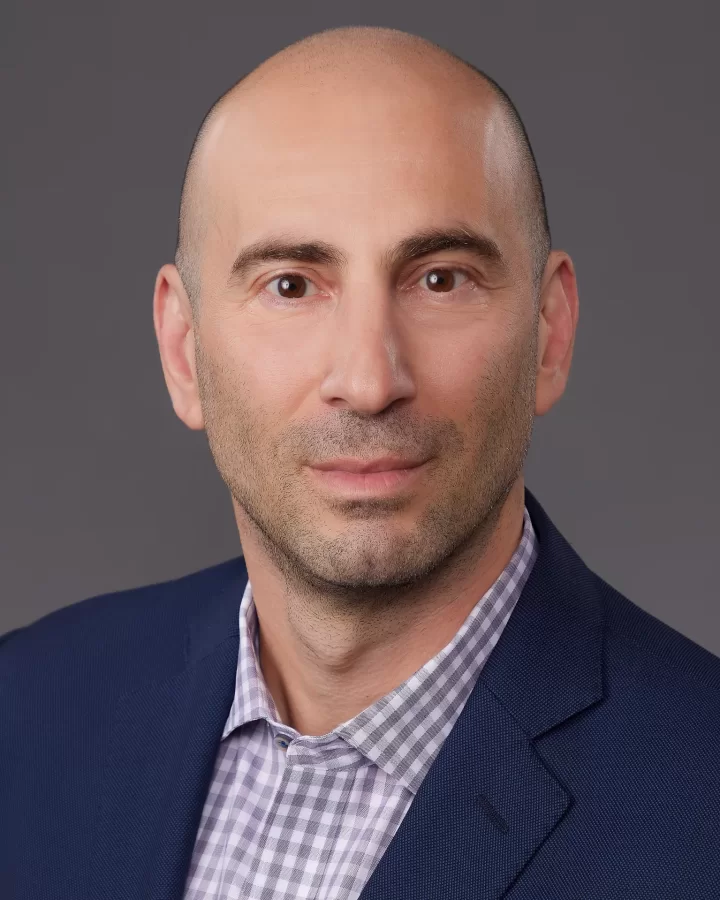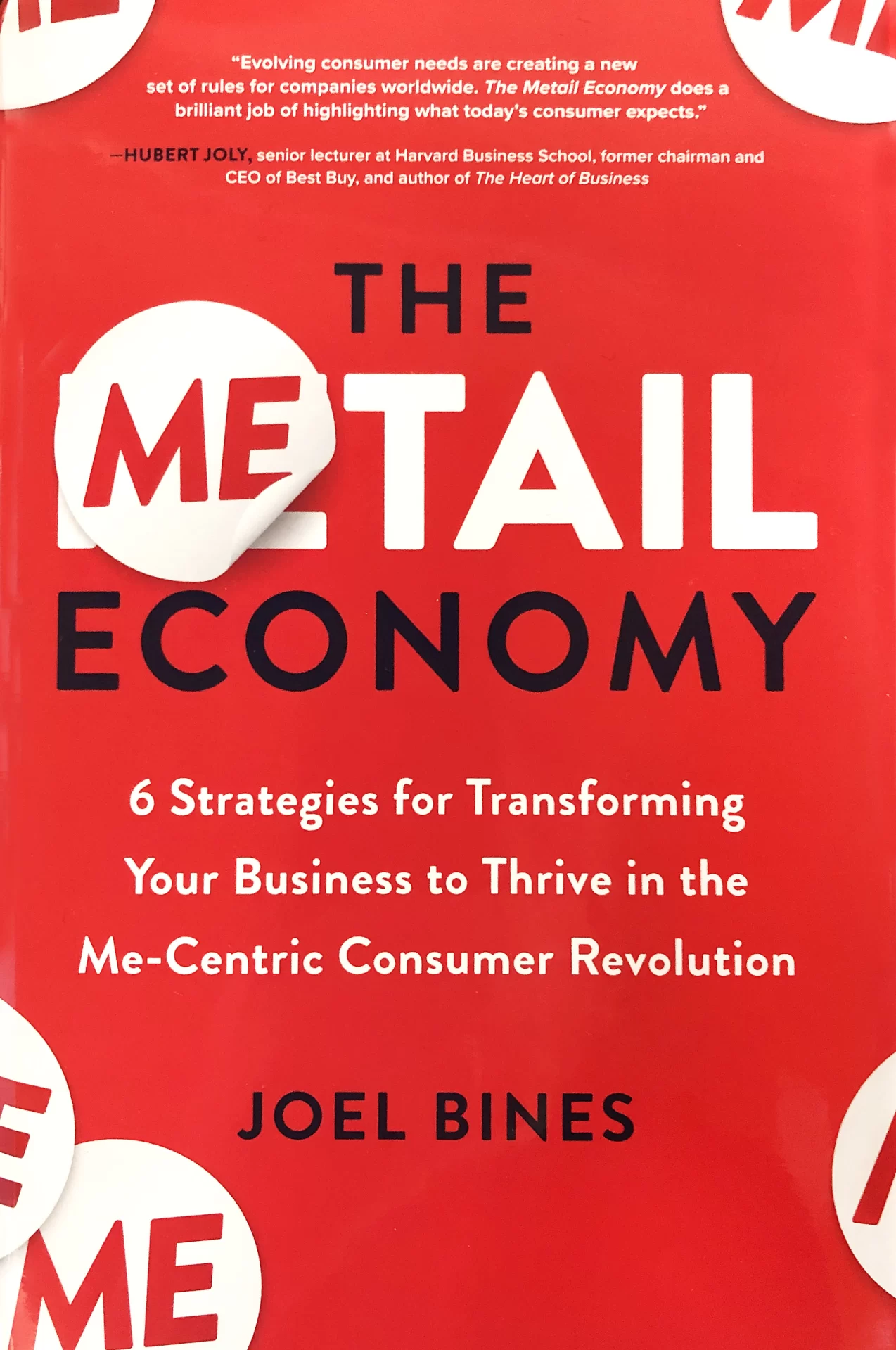
You can find an online review for pretty much anything now, from the latest iPhone model to the new restaurant downtown, to Bates College itself.
But long gone are the days when third-party experts and reviewers at places like Consumer Reports, The New York Times, or The Princeton Review dominated consumers’ attention. Today, the crowd of consumers is in control, reviewing products and places they personally experience, for better or for worse.
Consumers have more access to information — and other consumers — than ever before, according to author and retail expert Joel Bines ’92. In his new book, The Metail Economy (McGraw Hill, 2022), Bines puts a name to the phenomenon, changing how we think about shopping: metail.

“It’s the complete democratization of consumerism,” says Bines.
Consumers today have unprecedented, immediate access to information — about products, manufacturers, vendors, and what other consumers think. As Bines says in his book, “people don’t care what the experts have to say anymore.”
Consumer choice has always been part of the retail landscape. As Bines notes, “consumers have always had agency. The difference now is that they also have power.”
Long before online reviews were a thing — and long before the internet was a thing — Bines was working jobs that put him face-to-face with consumers: having a newspaper route, working in residential construction, as a baseball camp counselor, and even giving tours of the historic Revolutionary War battle green in his hometown of Lexington, Mass.

At each stop, Bines was figuring out what people wanted, even if it didn’t fit the mold he was given. For example, as a tour guide wearing his tricorn hat on summer days in the ’80s, he found that stretching the truth a bit to tell a more interesting story of the battle met the needs of tourists, resulting in bigger tips for Bines. “I just gave them what they wanted,” he says.
The point is, says the Bates philosophy major, “I have been watching the consumer change over the last 40 years: I feel like I have this anthropologist’s observation of decades of consumer behavior.”
And especially in the recent decade, “consumers have started behaving completely differently than the way they had behaved for my whole life. That’s what made me write this book.”
Now a managing director and co-head of the global retail practice at management consultant AlixPartners in Dallas, Bines works with retailers around the globe on fine-tuning their approach to a changing consumer environment.

Retail has moved on from the era of the “merchant prince,” CEOs of retail giants who became media darlings, like Mickey Drexler of Gap and J. Crew, praised as geniuses with a “boss knows best” mentality, who were adept at creating and curating cookie-cutter retail stores.
“We celebrated these people,” says Bines.
“But the reality of the situation is while they were brilliant and creative, they weren’t actually smarter than their consumers and they didn’t know better than their consumers. There just wasn’t the ability for their consumers to do anything about it.”
But now consumers can jump from one retailer to another more easily than ever. And the increased access consumers have to other consumers puts companies in a more precarious position than before: It’s never been easier to abandon a brand.
But that doesn’t mean all is lost, says Bines. “You’re not like, ‘Well, screw it. Consumers are in charge. There’s nothing we can do.’”
Instead, what consumers now expect, and what Bines focuses on in The Metail Economy, is for retailers to focus their attention on understanding who they are to their loyal consumers. And then be that thing to them, in every way, every time.
So how can companies cater to these newly empowered consumers? Bines lays out the Six C’s of the Metail Model: Cost, Convenience, Category Expertise, Customization, Curation, and Community.
But these C’s aren’t a whole strategy: they’re ingredients in a retail recipe, to be used in amounts and combinations specific to the company.
And although Bines’ Six C’s are geared toward retailers, the implications are fascinating for the consumer, too, as they understand how companies are responding to their greater-than-ever powers.

For example, most retailers want to make their experience Convenient. But for whom? As Bines told Inc., a retailer shouldn’t pursue a convenience strategy in order to benefit itself: such a strategy must focus on benefiting the consumer.
In his book, Bines points to Costco’s decision to install longer gas hoses at their pumps, making their gas stations easier for customers to use, no matter which side of the car their tank is on.
“Consumers see this as a customer-friendly convenience, but in truth, they help reduce congestion at the pumps, which allows more cars to pass through the pumps, which allows Costco to sell more gas,” says Bines. “It’s a win-win, but only because it first benefits the consumer.”
And with another of Bines’ C’s, Category Expertise, it’s not good enough for a retailer to answer most questions about its product; they must know “everything about their category,” noted Inc. in its review of The Metail Economy. “And for that one-in-a-million question that stumps them, they must know who does have the answer. Mastery of information is the key.”
Best Buy is a good example of a company that found their C: Category Expertise. When Amazon challenged their status as a large-category electronics store, Best Buy started making sure that while their prices were still competitive, their real focus was on providing the technical advice and support customers couldn’t easily get from Amazon.
Most experts predicted that Best Buy would go the way of retailers like Circuit City and so many others. “The experts were wrong because Best Buy became a Metailer.”
In adapting to this change — from which he’s sure there will be no return — Bines is focused on helping companies figure out how to navigate these new waters, from the boardroom to the showroom.
But first, they need to come up with their own, perfect blend of C’s for their retail recipe, because after all, says Bines, “Companies can’t be all things to all people.”




